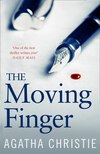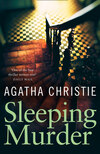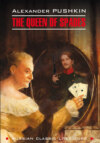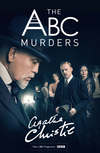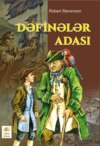Kitabı oku: «4.50 from Paddington», sayfa 2
CHAPTER 3
‘Less serious? Fiddlesticks!’ said Mrs McGillicuddy. ‘It was murder!’
She looked defiantly at Miss Marple and Miss Marple looked back at her.
‘Go on, Jane,’ said Mrs McGillicuddy. ‘Say it was all a mistake! Say I imagined the whole thing! That’s what you think now, isn’t it?’
‘Anyone can be mistaken,’ Miss Marple pointed out gently. ‘Anybody, Elspeth—even you. I think we must bear that in mind. But I still think, you know, that you were most probably not mistaken … You use glasses for reading, but you’ve got very good far sight—and what you saw impressed you very powerfully. You were definitely suffering from shock when you arrived here.’
‘It’s a thing I shall never forget,’ said Mrs McGillicuddy with a shudder. ‘The trouble is, I don’t see what I can do about it!’
‘I don’t think,’ said Miss Marple thoughtfully, ‘that there’s anything more you can do about it.’ (If Mrs McGillicuddy had been alert to the tones of her friend’s voice, she might have noticed a very faint stress laid on the you.) ‘You’ve reported what you saw—to the railway people and to the police. No, there’s nothing more you can do.’
‘That’s a relief, in a way,’ said Mrs McGillicuddy, ‘because as you know, I’m going out to Ceylon immediately after Christmas—to stay with Roderick, and I certainly do not want to put that visit off—I’ve been looking forward to it so much. Though of course I would put it off if I thought it was my duty,’ she added conscientiously.
‘I’m sure you would, Elspeth, but as I say, I consider you’ve done everything you possibly could do.’
‘It’s up to the police,’ said Mrs McGillicuddy. ‘And if the police choose to be stupid—’
Miss Marple shook her head decisively.
‘Oh, no,’ she said, ‘the police aren’t stupid. And that makes it interesting, doesn’t it?’
Mrs McGillicuddy looked at her without comprehension and Miss Marple reaffirmed her judgment of her friend as a woman of excellent principles and no imagination.
‘One wants to know,’ said Miss Marple, ‘what really happened.’
‘She was killed.’
‘Yes, but who killed her, and why, and what happened to her body? Where is it now?’
‘That’s the business of the police to find out.’
‘Exactly—and they haven’t found out. That means, doesn’t it, that the man was clever—very clever. I can’t imagine, you know,’ said Miss Marple, knitting her brows, ‘how he disposed of it … You kill a woman in a fit of passion—it must have been unpremeditated, you’d never choose to kill a woman in such circumstances just a few minutes before running into a big station. No, it must have been a quarrel—jealousy—something of that kind. You strangle her—and there you are, as I say, with a dead body on your hands and on the point of running into a station. What could you do except as I said at first, prop the body up in a corner as though asleep, hiding the face, and then yourself leave the train as quickly as possible. I don’t see any other possibility—and yet there must have been one …’
Miss Marple lost herself in thought.
Mrs McGillicuddy spoke to her twice before Miss Marple answered.
‘You’re getting deaf, Jane.’
‘Just a little, perhaps. People do not seem to me to enunciate their words as clearly as they used to do. But it wasn’t that I did not hear you. I’m afraid I wasn’t paying attention.’
‘I just asked about the trains to London to-morrow. Would the afternoon be all right? I’m going to Margaret’s and she isn’t expecting me before teatime.’
‘I wonder, Elspeth, if you would mind going up by the 12.15? We could have an early lunch.’
‘Of course and—’
Miss Marple went on, drowning her friend’s words:
‘And I wonder, too, if Margaret would mind if you didn’t arrive for tea—if you arrived about seven, perhaps?’
Mrs McGillicuddy looked at her friend curiously.
‘What’s on your mind, Jane?’
‘I suggest, Elspeth, that I should travel up to London with you, and that we should travel down again as far as Brackhampton in the train you travelled by the other day. You would then return to London from Brackhampton and I would come on here as you did. I, of course, would pay the fares,’ Miss Marple stressed this point firmly.
Mrs McGillicuddy ignored the financial aspect.
‘What on earth do you expect, Jane?’ she asked. ‘Another murder?’
‘Certainly not,’ said Miss Marple, shocked. ‘But I confess I should like to see for myself, under your guidance, the—the—really it is most difficult to find the correct term—the terrain of the crime.’
So accordingly on the following day Miss Marple and Mrs McGillicuddy found themselves in two opposite corners of a first-class carriage speeding out of London by the 4.50 from Paddington. Paddington had been even more crowded than on the preceding Friday—as there were now only two days to go before Christmas, but the 4.50 was comparatively peaceful—at any rate, in the rear portion.
On this occasion no train drew level with them, or they with another train. At intervals trains flashed past them towards London. On two occasions trains flashed past them the other way going at high speed. At intervals Mrs McGillicuddy consulted her watch doubtfully.
‘It’s hard to tell just when—we’d passed through a station I know …’ But they were continually passing through stations.
‘We’re due in Brackhampton in five minutes,’ said Miss Marple.
A ticket collector appeared in the doorway. Miss Marple raised her eyes interrogatively. Mrs McGillicuddy shook her head. It was not the same ticket collector. He clipped their tickets, and passed on staggering just a little as the train swung round a long curve. It slackened speed as it did so.
‘I expect we’re coming into Brackhampton,’ said Mrs McGillicuddy.
‘We’re getting into the outskirts, I think,’ said Miss Marple.
There were lights flashing past outside, buildings, an occasional glimpse of streets and trams. Their speed slackened further. They began crossing points.
‘We’ll be there in a minute,’ said Mrs McGillicuddy, ‘and I can’t really see this journey has been any good at all. Has it suggested anything to you, Jane?’
‘I’m afraid not,’ said Miss Marple in a rather doubtful voice.
‘A sad waste of good money,’ said Mrs McGillicuddy, but with less disapproval than she would have used had she been paying for herself. Miss Marple had been quite adamant on that point.
‘All the same,’ said Miss Marple, ‘one likes to see with one’s own eyes where a thing happened. This train’s just a few minutes late. Was yours on time on Friday?’
‘I think so. I didn’t really notice.’
The train drew slowly into the busy length of Brackhampton station. The loudspeaker announced hoarsely, doors opened and shut, people got in and out, milled up and down the platform. It was a busy crowded scene.
Easy, thought Miss Marple, for a murderer to merge into that crowd, to leave the station in the midst of that pressing mass of people, or even to select another carriage and go on in the train wherever its ultimate destination might be. Easy to be one male passenger amongst many. But not so easy to make a body vanish into thin air. That body must be somewhere.
Mrs McGillicuddy had descended. She spoke now from the platform, through the open window.
‘Now take care of yourself, Jane,’ she said. ‘Don’t catch a chill. It’s a nasty treacherous time of year, and you’re not so young as you were.’
‘I know,’ said Miss Marple.
‘And don’t let’s worry ourselves any more over all this. We’ve done what we could.’
Miss Marple nodded, and said:
‘Don’t stand about in the cold, Elspeth. Or you’ll be the one to catch a chill. Go and get yourself a good hot cup of tea in the Restaurant Room. You’ve got time, twelve minutes before your train back to town.’
‘I think perhaps I will. Good-bye, Jane.’
‘Good-bye, Elspeth. A happy Christmas to you. I hope you find Margaret well. Enjoy yourself in Ceylon, and give my love to dear Roderick—if he remembers me at all, which I doubt.’
‘Of course he remembers you—very well. You helped him in some way when he was at school—something to do with money that was disappearing from a locker—he’s never forgotten it.’
‘Oh, that!’ said Miss Marple.
Mrs McGillicuddy turned away, a whistle blew, the train began to move. Miss Marple watched the sturdy thickset body of her friend recede. Elspeth could go to Ceylon with a clear conscience—she had done her duty and was freed from further obligation.
Miss Marple did not lean back as the train gathered speed. Instead she sat upright and devoted herself seriously to thought. Though in speech Miss Marple was woolly and diffuse, in mind she was clear and sharp. She had a problem to solve, the problem of her own future conduct; and, perhaps strangely, it presented itself to her as it had to Mrs McGillicuddy, as a question of duty.
Mrs McGillicuddy had said that they had both done all that they could do. It was true of Mrs McGillicuddy but about herself Miss Marple did not feel so sure.
It was a question, sometimes, of using one’s special gifts … But perhaps that was conceited … After all, what could she do? Her friend’s words came back to her, ‘You’re not so young as you were …’
Dispassionately, like a general planning a campaign, or an accountant assessing a business, Miss Marple weighed up and set down in her mind the facts for and against further enterprise. On the credit side were the following:
1. My long experience of life and human nature.
2. Sir Henry Clithering and his godson (now at Scotland Yard, I believe), who was so very nice in the Little Paddocks case.
3. My nephew Raymond’s second boy, David, who is, I am almost sure, in British Railways.
4. Griselda’s boy Leonard who is so very knowledgeable about maps.
Miss Marple reviewed these assets and approved them. They were all very necessary, to reinforce the weaknesses on the debit side—in particular her own bodily weakness.
‘It is not,’ thought Miss Marple, ‘as though I could go here, there and everywhere, making inquiries and finding out things.’
Yes, that was the chief objection, her own age and weakness. Although, for her age, her health was good, yet she was old. And if Dr Haydock had strictly forbidden her to do practical gardening he would hardly approve of her starting out to track down a murderer. For that, in effect, was what she was planning to do—and it was there that her loophole lay. For if heretofore murder had, so to speak, been forced upon her, in this case it would be that she herself set out deliberately to seek it. And she was not sure that she wanted to do so … She was old—old and tired. She felt at this moment, at the end of a tiring day, a great reluctance to enter upon any project at all. She wanted nothing at all but to march home and sit by the fire with a nice tray of supper, and go to bed, and potter about the next day just snipping off a few things in the garden, tidying up in a very mild way, without stooping, without exerting herself …
‘I’m too old for any more adventures,’ said Miss Marple to herself, watching absently out of the window the curving line of an embankment …
A curve …
Very faintly something stirred in her mind … Just after the ticket collector had clipped their tickets …
It suggested an idea. Only an idea. An entirely different idea …
A little pink flush came into Miss Marple’s face. Suddenly she did not feel tired at all!
‘I’ll write to David to-morrow morning,’ she said to herself.
And at the same time another valuable asset flashed through her mind.
‘Of course. My faithful Florence!’
Miss Marple set about her plan of campaign methodically and making due allowance for the Christmas season which was a definitely retarding factor.
She wrote to her great-nephew, David West, combining Christmas wishes with an urgent request for information.
Fortunately she was invited, as on previous years, to the vicarage for Christmas dinner, and here she was able to tackle young Leonard, home for the Christmas season, about maps.
Maps of all kinds were Leonard’s passion. The reason for the old lady’s inquiry about a large-scale map of a particular area did not rouse his curiosity. He discoursed on maps generally with fluency, and wrote down for her exactly what would suit her purpose best. In fact, he did better. He actually found that he had such a map amongst his collection and he lent it to her, Miss Marple promising to take great care of it and return it in due course.
‘Maps,’ said his mother, Griselda, who still, although she had a grown-up son, looked strangely young and blooming to be inhabiting the shabby old vicarage. ‘What does she want with maps? I mean, what does she want them for?’
‘I don’t know,’ said young Leonard, ‘I don’t think she said exactly.’
‘I wonder now …’ said Griselda. ‘It seems very fishy to me … At her age the old pet ought to give up that sort of thing.’
Leonard asked what sort of thing, and Griselda said elusively:
‘Oh, poking her nose into things. Why maps, I wonder?’
In due course Miss Marple received a letter from her great-nephew David West. It ran affectionately:
‘Dear Aunt Jane,—Now what are you up to? I’ve got the information you wanted. There are only two trains that can possibly apply—the 4.33 and the 5 o’clock. The former is a slow train and stops at Haling Broadway, Barwell Heath, Brackhampton and then stations to Market Basing. The 5 o’clock is the Welsh express for Cardiff, Newport and Swansea. The former might be overtaken somewhere by the 4.50, although it is due in Brackhampton five minutes earlier and the latter passes the 4.50 just before Brackhampton.
In all this do I smell some village scandal of a fruity character? Did you, returning from a shopping spree in town by the 4.50, observe in a passing train the mayor’s wife being embraced by the Sanitary Inspector? But why does it matter which train it was? A week-end at Porthcawl perhaps? Thank you for the pullover. Just what I wanted. How’s the garden? Not very active this time of year, I should imagine.
Yours ever,
David’
Miss Marple smiled a little, then considered the information thus presented to her. Mrs McGillicuddy had said definitely that the carriage had not been a corridor one. Therefore—not the Swansea express. The 4.33 was indicated.
Also some more travelling seemed unavoidable. Miss Marple sighed, but made her plans.
She went up to London as before on the 12.15, but this time returned not by the 4.50, but by the 4.33 as far as Brackhampton. The journey was uneventful, but she registered certain details. The train was not crowded—4.33 was before the evening rush hour. Of the first-class carriages only one had an occupant—a very old gentleman reading the New Statesman. Miss Marple travelled in an empty compartment and at the two stops, Haling Broadway and Barwell Heath, leaned out of the window to observe passengers entering and leaving the train. A small number of third-class passengers got in at Haling Broadway. At Barwell Heath several third-class passengers got out. Nobody entered or left a first-class carriage except the old gentleman carrying his New Statesman.
As the train neared Brackhampton, sweeping around a curve of line, Miss Marple rose to her feet and stood experimentally with her back to the window over which she had drawn down the blind.
Yes, she decided, the impetus of the sudden curving of the line and the slackening of speed did throw one off one’s balance back against the window and the blind might, in consequence, very easily fly up. She peered out into the night. It was lighter than it had been when Mrs McGillicuddy had made the same journey—only just dark, but there was little to see. For observation she must make a daylight journey.
On the next day she went up by the early morning train, purchased four linen pillow-cases (tut-tutting at the price!) so as to combine investigation with the provision of household necessities, and returned by a train leaving Paddington at twelve fifteen. Again she was alone in a first-class carriage. ‘This taxation,’ thought Miss Marple, ‘that’s what it is. No one can afford to travel first class except business men in the rush hours. I suppose because they can charge it to expenses.’
About a quarter of an hour before the train was due at Brackhampton, Miss Marple got out the map with which Leonard had supplied her and began to observe the country-side. She had studied the map very carefully beforehand, and after noting the name of a station they passed through, she was soon able to identify where she was just as the train began to slacken for a curve. It was a very considerable curve indeed. Miss Marple, her nose glued to the window, studied the ground beneath her (the train was running on a fairly high embankment) with close attention. She divided her attention between the country outside and the map until the train finally ran into Brackhampton.
That night she wrote and posted a letter addressed to Miss Florence Hill, 4 Madison Road, Brackhampton … On the following morning, going to the County library, she studied a Brackhampton directory and gazetteer, and a County history.
Nothing so far had contradicted the very faint and sketchy idea that had come to her. What she had imagined was possible. She would go no further than that.
But the next step involved action—a good deal of action—the kind of action for which she, herself, was physically unfit. If her theory were to be definitely proved or disproved, she must at this point have help from some other source. The question was—who? Miss Marple reviewed various names and possibilities, rejecting them all with a vexed shake of the head. The intelligent people on whose intelligence she could rely were all far too busy. Not only had they all got jobs of varying importance, their leisure hours were usually apportioned long beforehand. The unintelligent who had time on their hands were simply, Miss Marple decided, no good.
She pondered in growing vexation and perplexity.
Then suddenly her forehead cleared. She ejaculated aloud a name.
‘Of course!’ said Miss Marple. ‘Lucy Eyelesbarrow!’
CHAPTER 4
The name of Lucy Eyelesbarrow had already made itself felt in certain circles.
Lucy Eyelesbarrow was thirty-two. She had taken a First in Mathematics at Oxford, was acknowledged to have a brilliant mind and was confidently expected to take up a distinguished academic career.
But Lucy Eyelesbarrow, in addition to scholarly brilliance, had a core of good sound common sense. She could not fail to observe that a life of academic distinction was singularly ill rewarded. She had no desire whatever to teach and she took pleasure in contacts with minds much less brilliant than her own. In short, she had a taste for people, all sorts of people—and not the same people the whole time. She also, quite frankly, liked money. To gain money one must exploit shortage.
Lucy Eyelesbarrow hit at once upon a very serious shortage—the shortage of any kind of skilled domestic labour. To the amazement of her friends and fellow-scholars, Lucy Eyelesbarrow entered the field of domestic labour.
Her success was immediate and assured. By now, after a lapse of some years, she was known all over the British Isles. It was quite customary for wives to say joyfully to husbands, ‘It will be all right. I can go with you to the States. I’ve got Lucy Eyelesbarrow!’ The point of Lucy Eyelesbarrow was that once she came into a house, all worry, anxiety and hard work went out of it. Lucy Eyelesbarrow did everything, saw to everything, arranged everything. She was unbelievably competent in every conceivable sphere. She looked after elderly parents, accepted the care of young children, nursed the sickly, cooked divinely, got on well with any old crusted servants there might happen to be (there usually weren’t), was tactful with impossible people, soothed habitual drunkards, was wonderful with dogs. Best of all she never minded what she did. She scrubbed the kitchen floor, dug in the garden, cleaned up dog messes, and carried coals!
One of her rules was never to accept an engagement for any long length of time. A fortnight was her usual period—a month at most under exceptional circumstances. For that fortnight you had to pay the earth! But, during that fortnight, your life was heaven. You could relax completely, go abroad, stay at home, do as you pleased, secure that all was going well on the home front in Lucy Eyelesbarrow’s capable hands.
Naturally the demand for her services was enormous. She could have booked herself up if she chose for about three years ahead. She had been offered enormous sums to go as a permanency. But Lucy had no intention of being a permanency, nor would she book herself for more than six months ahead. And within that period, unknown to her clamouring clients, she always kept certain free periods which enabled her either to take a short luxurious holiday (since she spent nothing otherwise and was handsomely paid and kept) or to accept any position at short notice that happened to take her fancy, either by reason of its character, or because she ‘liked the people’. Since she was now at liberty to pick and choose amongst the vociferous claimants for her services, she went very largely by personal liking. Mere riches would not buy you the services of Lucy Eyelesbarrow. She could pick and choose and she did pick and choose. She enjoyed her life very much and found in it a continual source of entertainment.
Lucy Eyelesbarrow read and re-read the letter from Miss Marple. She had made Miss Marple’s acquaintance two years ago when her services had been retained by Raymond West, the novelist, to go and look after his old aunt who was recovering from pneumonia. Lucy had accepted the job and had gone down to St Mary Mead. She had liked Miss Marple very much. As for Miss Marple, once she had caught a glimpse out of her bedroom window of Lucy Eyelesbarrow really trenching for sweet peas in the proper way, she had leaned back on her pillows with a sigh of relief, eaten the tempting little meals that Lucy Eyelesbarrow brought to her, and listened, agreeably surprised, to the tales told by her elderly irascible maidservant of how ‘I taught that Miss Eyelesbarrow a crochet pattern what she’d never heard of! Proper grateful, she was.’ And had surprised her doctor by the rapidity of her convalescence.
Miss Marple wrote asking if Miss Eyelesbarrow could undertake a certain task for her—rather an unusual one. Perhaps Miss Eyelesbarrow could arrange a meeting at which they could discuss the matter.
Lucy Eyelesbarrow frowned for a moment or two as she considered. She was in reality fully booked up. But the word unusual, and her recollection of Miss Marple’s personality, carried the day and she rang up Miss Marple straight away explaining that she could not come down to St Mary Mead as she was at the moment working, but that she was free from 2 to 4 on the following afternoon and could meet Miss Marple anywhere in London. She suggested her own club, a rather nondescript establishment which had the advantage of having several small dark writing-rooms which were usually empty.
Miss Marple accepted the suggestion and on the following day the meeting took place.
Greetings were exchanged; Lucy Eyelesbarrow led her guest to the gloomiest of the writing-rooms, and said: ‘I’m afraid I’m rather booked up just at present, but perhaps you’ll tell me what it is you want me to undertake?’
‘It’s very simple, really,’ said Miss Marple. ‘Unusual, but simple. I want you to find a body.’
For a moment the suspicion crossed Lucy’s mind that Miss Marple was mentally unhinged, but she rejected the idea. Miss Marple was eminently sane. She meant exactly what she had said.
‘What kind of a body?’ asked Lucy Eyelesbarrow with admirable composure.
‘A woman’s body,’ said Miss Marple. ‘The body of a woman who was murdered—strangled actually—in a train.’
Lucy’s eyebrows rose slightly.
‘Well, that’s certainly unusual. Tell me about it.’
Miss Marple told her. Lucy Eyelesbarrow listened attentively, without interrupting. At the end she said:
‘It all depends on what your friend saw—or thought she saw –?’
She left the sentence unfinished with a question in it.
‘Elspeth McGillicuddy doesn’t imagine things,’ said Miss Marple. ‘That’s why I’m relying on what she said. If it had been Dorothy Cartwright, now—it would have been quite a different matter. Dorothy always has a good story, and quite often believes it herself, and there is usually a kind of basis of truth but certainly no more. But Elspeth is the kind of woman who finds it very hard to make herself believe that anything at all extraordinary or out of the way could happen. She’s almost unsuggestible, rather like granite.’
‘I see,’ said Lucy thoughtfully. ‘Well, let’s accept it all. Where do I come in?’
‘I was very much impressed by you,’ said Miss Marple, ‘and you see, I haven’t got the physical strength nowadays to get about and do things.’
‘You want me to make inquiries? That sort of thing? But won’t the police have done all that? Or do you think they have been just slack?’
‘Oh, no,’ said Miss Marple. ‘They haven’t been slack. It’s just that I’ve got a theory about the woman’s body. It’s got to be somewhere. If it wasn’t found in the train, then it must have been pushed or thrown out of the train—but it hasn’t been discovered anywhere on the line. So I travelled down the same way to see if there was anywhere where the body could have been thrown off the train and yet wouldn’t have been found on the line—and there was. The railway line makes a big curve before getting into Brackhampton, on the edge of a high embankment. If a body were thrown out there, when the train was leaning at an angle, I think it would pitch right down the embankment.’
‘But surely it would still be found—even there?’
‘Oh, yes. It would have to be taken away … But we’ll come to that presently. Here’s the place—on this map.’
Lucy bent to study where Miss Marple’s finger pointed.
‘It is right in the outskirts of Brackhampton now,’ said Miss Marple, ‘but originally it was a country house with extensive park and grounds and it’s still there, untouched—ringed round with building estates and small suburban houses. It’s called Rutherford Hall. It was built by a man called Crackenthorpe, a very rich manufacturer, in 1884. The original Crackenthorpe’s son, an elderly man, is living there still with, I understand, a daughter. The railway encircles quite half of the property.’
‘And you want me to do—what?’
Miss Marple replied promptly.
‘I want you to get a post there. Everyone is crying out for efficient domestic help—I should not imagine it would be difficult.’
‘No, I don’t suppose it would be difficult.’
‘I understand that Mr Crackenthorpe is said locally to be somewhat of a miser. If you accept a low salary, I will make it up to the proper figure which should, I think, be rather more than the current rate.’
‘Because of the difficulty?’
‘Not the difficulty so much as the danger. It might, you know, be dangerous. It’s only right to warn you of that.’
‘I don’t know,’ said Lucy pensively, ‘that the idea of danger would deter me.’
‘I didn’t think it would,’ said Miss Marple. ‘You’re not that kind of person.’
‘I dare say you thought it might even attract me? I’ve encountered very little danger in my life. But do you really believe it might be dangerous?’
‘Somebody,’ Miss Marple pointed out, ‘has committed a very successful crime. There has been no hue-and-cry, no real suspicion. Two elderly ladies have told a rather improbable story, the police have investigated it and found nothing in it. So everything is nice and quiet. I don’t think that this somebody, whoever he may be, will care about the matter being raked up—especially if you are successful.’
‘What do I look for exactly?’
‘Any signs along the embankment, a scrap of clothing, broken bushes—that kind of thing.’
Lucy nodded.
‘And then?’
‘I shall be quite close at hand,’ said Miss Marple. ‘An old maidservant of mine, my faithful Florence, lives in Brackhampton. She has looked after her old parents for years. They are now both dead, and she takes in lodgers—all most respectable people. She has arranged for me to have rooms with her. She will look after me most devotedly, and I feel I should like to be close at hand. I would suggest that you mention you have an elderly aunt living in the neighbourhood, and that you want a post within easy distance of her, and also that you stipulate for a reasonable amount of spare time so that you can go and see her often.’
Again Lucy nodded.
‘I was going to Taormina the day after to-morrow,’ she said. ‘The holiday can wait. But I can only promise three weeks. After that, I am booked up.’
‘Three weeks should be ample,’ said Miss Marple. ‘If we can’t find out anything in three weeks, we might as well give up the whole thing as a mare’s nest.’
Miss Marple departed, and Lucy, after a moment’s reflection, rang up a Registry Office in Brackhampton, the manageress of which she knew very well. She explained her desire for a post in the neighbourhood so as to be near her ‘aunt’. After turning down, with a little difficulty and a good deal of ingenuity, several more desirable places, Rutherford Hall was mentioned.
‘That sounds exactly what I want,’ said Lucy firmly.
The Registry Office rang up Miss Crackenthorpe, Miss Crackenthorpe rang up Lucy.
Two days later Lucy left London en route for Rutherford Hall.
Driving her own small car, Lucy Eyelesbarrow drove through an imposing pair of vast iron gates. Just inside them was what had originally been a small lodge which now seemed completely derelict, whether through war damage, or merely through neglect, it was difficult to be sure. A long winding drive led through large gloomy clumps of rhododendrons up to the house. Lucy caught her breath in a slight gasp when she saw the house which was a kind of miniature Windsor Castle. The stone steps in front of the door could have done with attention and the gravel sweep was green with neglected weeds.

